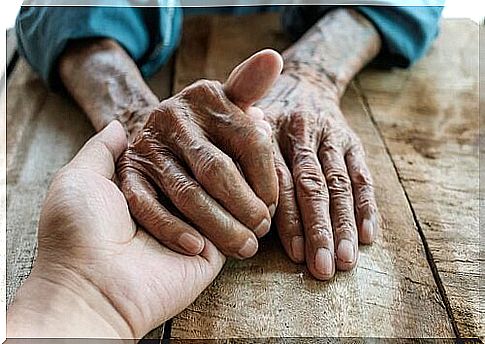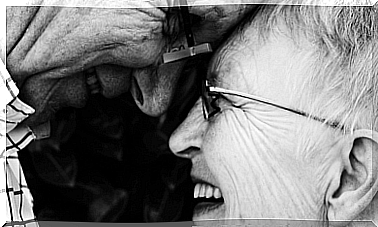The Caregiver Syndrome: The Collateral Damage Of Helping Others

What would it be like to have a job that occupies us 24 hours a day? Not that far from reality. This is the case with a large number of adults who are forced to take on the role of caregivers of other people who are in a situation of dependency. But be careful because this new role can sometimes lead to what is known as “caregiver syndrome”.
The constant attention that the healthy person must pay to the dependent person can cause stress episodes of different intensities. This is one of the main pillars of this syndrome, a collateral damage caused by continuous help to others.
It is a disorder which, although it is still little known, presents multiple symptoms and very serious consequences, both physically and psychologically. It looks like burnout syndrome or stress at work. The similar syndrome among workers in the health care sector is called “compassion fatigue”.
Caregiver-dependent
These people are in charge of other people who need constant help. This syndrome appears mainly in adults who have to treat other adults with neurological or psychiatric changes. Patients with advanced Alzheimer’s, for example, need this ongoing support and supervision.
Therefore, one of the main features of caregiver syndrome is exhaustion on both mental and physical levels. Their exhaustion is so great that their physical, psychological and social capacities are severely affected. On the other hand, if the healer and the healer live together under the same roof, the wear generated is much faster and more powerful because it is much more difficult not to make this heal the center of his own life.

Imposed role
In general terms, a person does not turn into a caregiver on purpose. Thus, in the vast majority of cases, this role is imposed or designated by the different circumstances of each person or family. These adults therefore quickly find themselves with an additional workload, which arises suddenly and completely unexpectedly.
Some people are ready to face this new situation and very naturally take on this new role. Others, on the other hand, do not have as many resources and are faced, from the start, with a challenge that they consider unaffordable. They feel helpless. They see their new role as an unbearable and very burdensome difficulty. Either way, the addict becomes the new center of their life and needs most of their time and energy.
How is this syndrome born?
Caring for someone, relentlessly or without the necessary rest, is a tiring process. And it’s even more complicated if you let yourself go. The usual thing is that, during this process, the healer gradually takes on the new tasks that he has to fulfill. He must therefore create a new routine during which the priority becomes the person he is responsible for. He therefore ceases to have time for himself, puts his independence aside and gives up completely.
Free time
In his free time, the caregiver gradually gives up his passions. The time he devotes to his leisure activities and his family relations is reduced considerably. In addition, he moves away from his circle of friends because he links less and less to others. He can therefore come to isolate himself completely from the outside world.

Family
At the level of family relations, new conflicts arise because of the accession of a new member in the nuclear family. Irascibility seems to be generalized among all the inhabitants of the house and arguments increase. A new division of labor also occurs, which is not to everyone’s satisfaction.
Job
In relation to work, we can note an increase in absenteeism, neglect of duties or even abandonment of the post. The economic situation, therefore, can become difficult. This exponentially increases the level of physical and mental overload already accumulated due to the caregiver’s situation.
However, instead of diminishing, this pressure and this continuous struggle are increasing day by day. As they are prolonged in time, the healer finds it more and more difficult to face with envy, freshness and illusion the role he has acquired. Several things start to happen: insomnia, chronic fatigue, changes in mood… This gives rise to deep feelings of sadness, anxiety and worry.
In general, these changes that occur in the life of the caregiver are varied and can affect them in the short, medium and long term as well.
If this continues … the caregiver syndrome appears
When the caregiver finds himself immersed in a routine to which he is not paying attention, stress, anxiety, fatigue and exhaustion begin to arise. This is a real breeding ground for caregiver syndrome. In addition, his irritability and impatience increase. It causes demotivation, suffocation, irritability and even violence.
A series of negative attitudes and feelings towards the addict can arise as a result of this syndrome. The caregiver may come to feel contempt for the latter. It is therefore essential that he becomes aware of one thing: he must protect himself. It is important to prevent the onset of caregiver syndrome. Not only because it negatively affects the caregiver, but because it can also reduce the quality of life of the dependent person. Therefore, this alteration has a double effect which will require a remedy. It will be necessary to consult a professional and seek help with the daily tasks of the caregiver.










